
Jalal-Abad: Oasis of Hot Springs and Mountain Majesty
Nestled in the southwest of Kyrgyzstan, Jalal-Abad is a charming city known for its rejuvenating hot springs and stunning mountainous landscapes. It is the third-largest city in the country and a key stop on the Silk Road, offering a unique blend of history, culture, and natural beauty. Visitors to Jalal-Abad can explore the historical sites, including remnants of ancient fortresses and medieval baths that tell tales of a rich past. Jalal-Abad is also famed for its health resorts, where travelers can soak in mineral-rich waters that are believed to have healing properties. The local spas and sanatoriums are perfect places to unwind and rejuvenate. Don't miss visiting the nearby Arslanbob, a picturesque village surrounded by the world’s largest walnut forest. Here, you can hike through scenic trails, enjoy breathtaking waterfalls, and experience the warm hospitality of the local people. The city markets are vibrant and full of life, offering a taste of authentic Kyrgyz culture. You can sample local delicacies, buy traditional crafts, and interact with friendly locals. Jalal-Abad offers a blend of relaxation and adventure, making it an ideal destination for travelers seeking both peace and excitement.
Local tips in Jalal-Abad
- Visit the hot springs early in the morning to avoid crowds and enjoy a peaceful soak.
- Bring comfortable hiking shoes if you plan to explore the trails around Arslanbob.
- Learn a few basic Kyrgyz phrases to enhance your interactions with locals.
- Try local dishes such as plov and samsa at the city markets for an authentic culinary experience.
- Carry cash, as credit cards might not be accepted in all places.
Jalal-Abad: Oasis of Hot Springs and Mountain Majesty
Nestled in the southwest of Kyrgyzstan, Jalal-Abad is a charming city known for its rejuvenating hot springs and stunning mountainous landscapes. It is the third-largest city in the country and a key stop on the Silk Road, offering a unique blend of history, culture, and natural beauty. Visitors to Jalal-Abad can explore the historical sites, including remnants of ancient fortresses and medieval baths that tell tales of a rich past. Jalal-Abad is also famed for its health resorts, where travelers can soak in mineral-rich waters that are believed to have healing properties. The local spas and sanatoriums are perfect places to unwind and rejuvenate. Don't miss visiting the nearby Arslanbob, a picturesque village surrounded by the world’s largest walnut forest. Here, you can hike through scenic trails, enjoy breathtaking waterfalls, and experience the warm hospitality of the local people. The city markets are vibrant and full of life, offering a taste of authentic Kyrgyz culture. You can sample local delicacies, buy traditional crafts, and interact with friendly locals. Jalal-Abad offers a blend of relaxation and adventure, making it an ideal destination for travelers seeking both peace and excitement.
When is the best time to go to Jalal-Abad?
Iconic landmarks you can’t miss
Ala Too Square
Ala Too Square in Bishkek: A vibrant historical landmark embodying Kyrgyz culture and history, ideal for relaxation and cultural experiences.
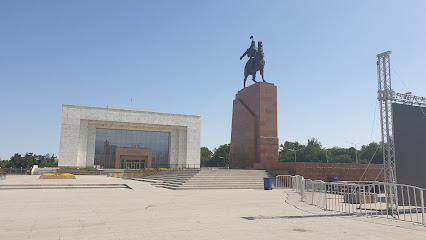
Victory Square
Discover Victory Square in Bishkek, a memorial park celebrating bravery, history, and the spirit of Kyrgyzstan.
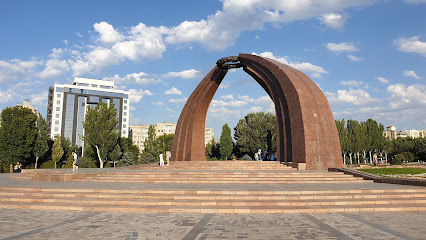
Asanbai Park
Explore the fun-filled Asanbai Park in Bishkek, a perfect blend of amusement rides, scenic beauty, and cultural experiences for every traveler.
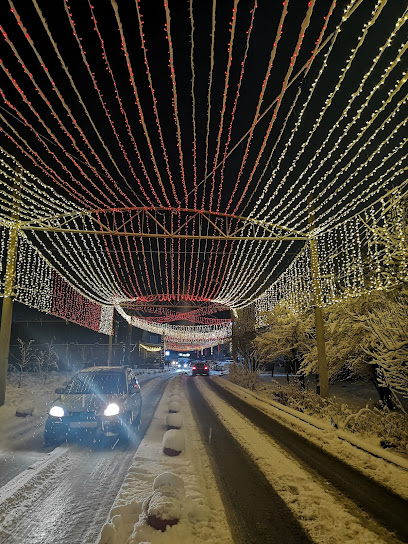
Rukh Ordo
Experience the vibrant culture and artistry of Kyrgyzstan at Rukh Ordo, a premier cultural center in Cholpon Ata, by the scenic shores of Lake Issyk-Kul.
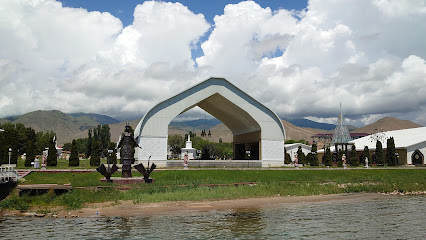
Jalal-Abad chaikhana
Discover authentic Kyrgyz cuisine at Jalal-Abad Chaikhana, a must-visit restaurant in Bishkek, blending tradition with a warm and inviting atmosphere.
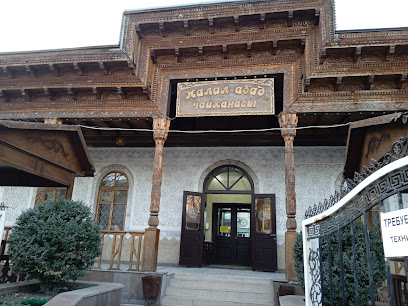
Monument to Alymbek Datka
Discover the Monument to Alymbek Datka in Osh, a historical landmark celebrating Kyrgyzstan's heritage and national pride with stunning views.
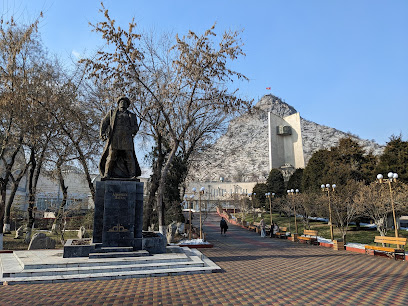
Jalal-Abad Airport
Discover the beauty of Kyrgyzstan at Jalal-Abad Airport, your gateway to pristine nature and rich cultural experiences in Central Asia.
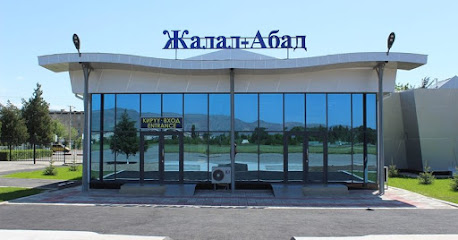
Roza Park hotel
Discover comfort and tranquility at Roza Park Hotel, your perfect getaway in Jalal-Abad, Kyrgyzstan, surrounded by stunning natural beauty.

Tash Rabat
Explore Tash Rabat, a historical caravanserai in Kyrgyzstan, where the rich Silk Road heritage meets stunning mountain landscapes.
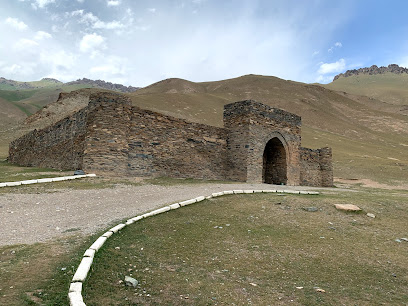
Jannat Regency Jalal Abad
Discover unparalleled luxury and comfort at Jannat Regency Jalal Abad, where modern elegance meets Kyrgyz hospitality in the heart of Jalal-Abad.
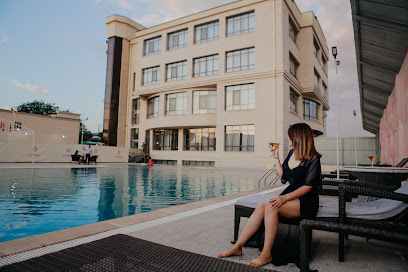
Shakh-Fazil'
Explore the spiritual essence and breathtaking beauty of Shakh-Fazil', a must-visit religious destination in Safed-Bulan that captivates all who enter.
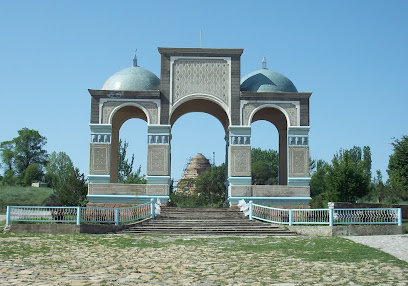
Toktogul Park
Explore the serene beauty of Toktogul Park in Jalal-Abad, a perfect retreat for nature lovers seeking relaxation and tranquility.
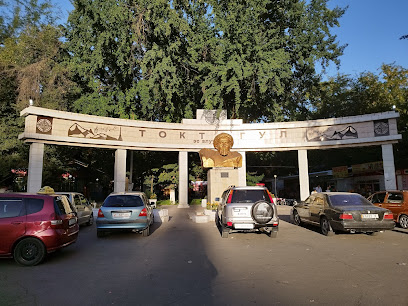
Zh.abad
Explore the breathtaking landscapes and rich cultural heritage of Zh.abad, a must-visit tourist attraction in Jalal-Abad, Kyrgyzstan.
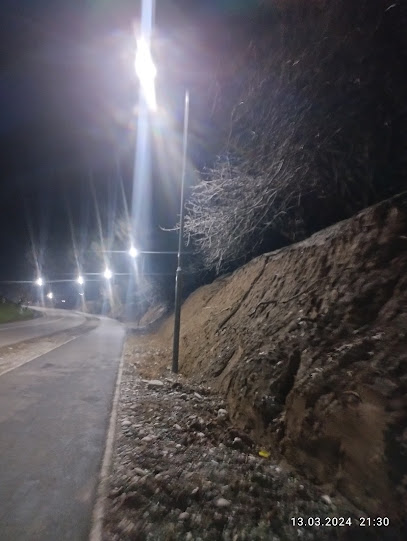
Asif ibn Burkhiya
Uncover the legends and historical significance of Asif ibn Burkhiya, a captivating monument nestled in the heart of Osh, Kyrgyzstan.
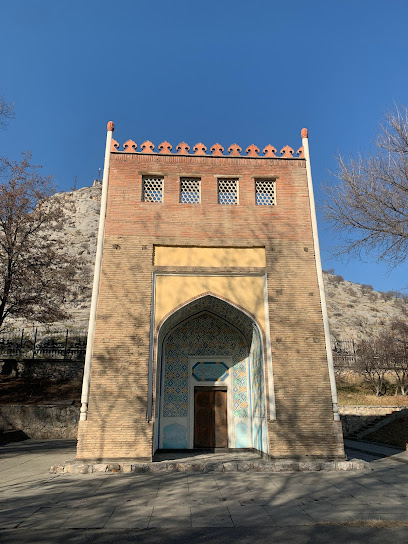
Kurmanzhan Datka Statue
Explore the Kurmanzhan Datka Statue in Bishkek, a striking sculpture honoring a legendary figure of Kyrgyz history amidst vibrant local culture.
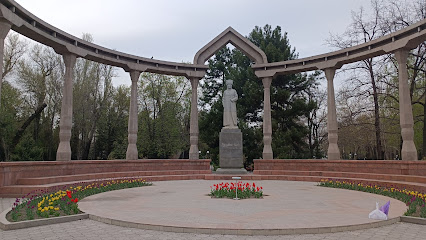
Unmissable attractions to see
The Uzgen Minaret
Explore the historic Uzgen Minaret, an architectural gem and iconic symbol of Kyrgyzstan's rich Islamic heritage, nestled in the scenic landscape of Uzgen.
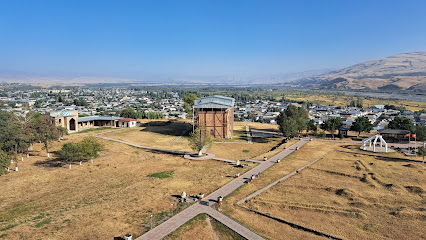
Pkio Im. Toktogul Satylganova
Experience the lush landscapes and family-friendly attractions at Pkio Im. Toktogul Satylganova in Jalal-Abad, a perfect getaway for nature lovers.
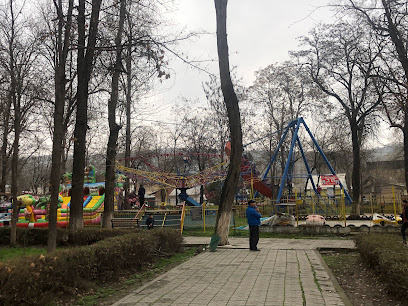
Toktogul Park
Explore the lush landscapes and tranquil ambiance of Toktogul Park, a serene escape in Jalal-Abad, Kyrgyzstan, perfect for relaxation and family fun.
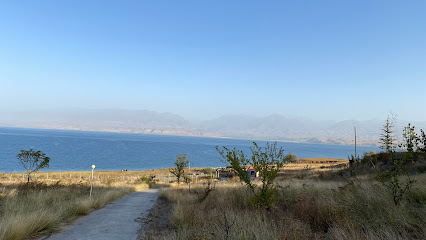
Zh.abad
Explore the enchanting Zh.abad in Jalal-Abad, where stunning landscapes meet rich cultural heritage for an unforgettable travel experience.
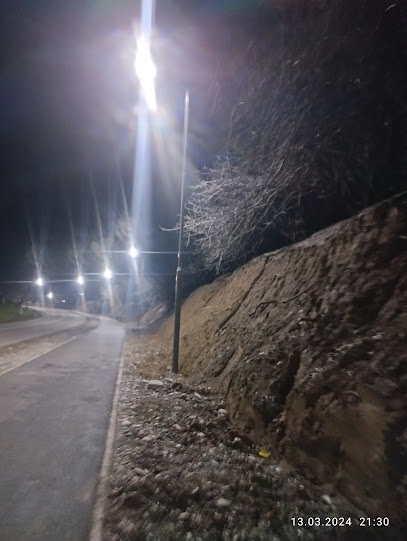
Suleman-Too
Discover Suleman-Too, a UNESCO World Heritage site in Osh, Kyrgyzstan, where breathtaking views meet rich cultural heritage on your travel adventure.
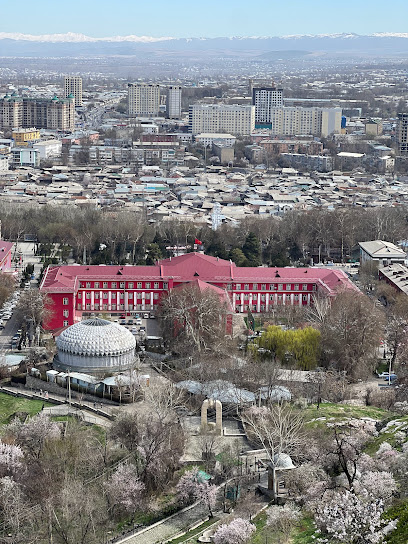
Essential places to dine
Mukhammed-Azhy Kafesi
Discover authentic Kyrgyz cuisine at Mukhammed-Azhy Kafesi in Suzak - where every meal tells a story!
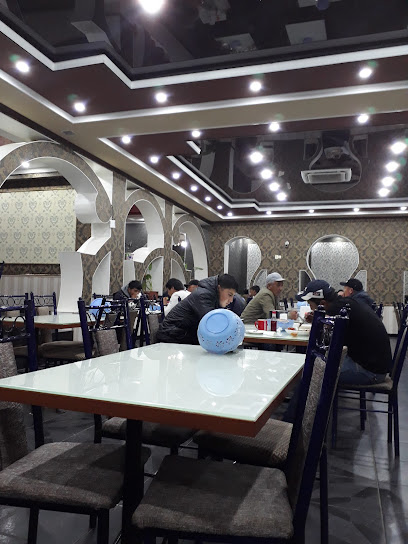
Jalal-Abad
Explore Jalal-Abad: A Culinary Journey Through Kyrgyzstan's Heartland with Rich Flavors and Cultural Experiences.

Altyn Saray
Discover authentic Kyrgyz cuisine at Altyn Saray in Jalal-Abad – where tradition meets taste in a vibrant dining atmosphere.
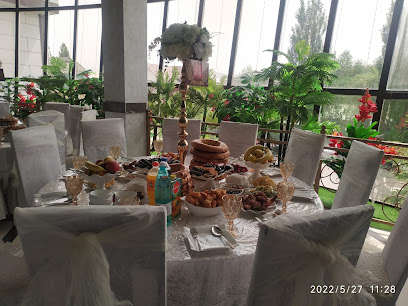
Royal Spa
Experience culinary excellence at Royal Spa in Jalal-Abad - where every dish is a celebration of local flavors amidst serene surroundings.
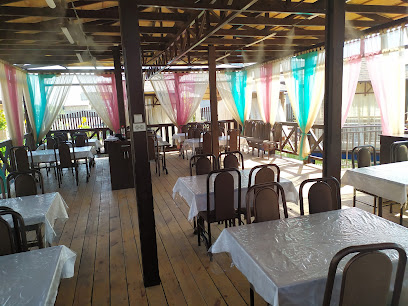
Rich House
Discover authentic Kyrgyz flavors at Rich House in Jalal-Abad - where traditional meets contemporary in a cozy setting.
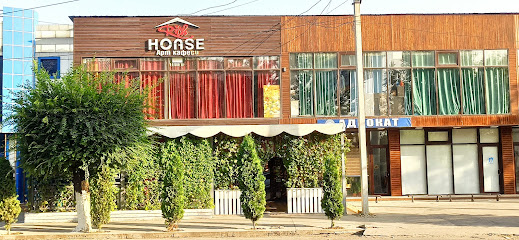
Чайхана №1 кафе
Savor authentic Central Asian cuisine in a family-friendly atmosphere at Чайхана №1 кафе in Jalal-Abad.
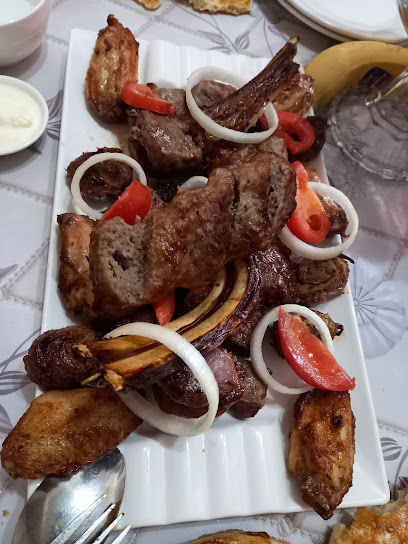
ANDALUS (АНДАЛУС)
Experience authentic Turkish cuisine at Andalus in Jalal-Abad - where flavors meet hospitality in a cozy setting.
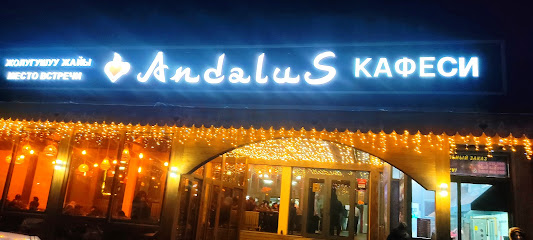
AURUM Ресторан кафеси
Discover the taste of tradition at AURUM Ресторан кафеси in Jalal-Abad – where families gather to savor exquisite Kyrgyz and international cuisine.
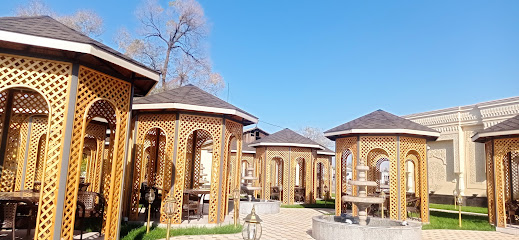
Санжыра
Experience authentic Kyrgyz cuisine at Санжыра in Jalal-Abad – where every dish tells a story.
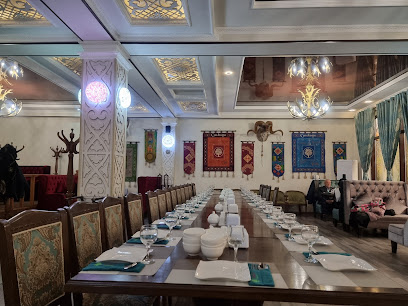
I love burger
Experience the ultimate burger delight at I Love Burger in Jalal-Abad - where flavor meets fast food bliss!
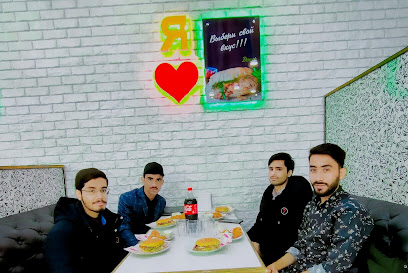
Chaykhana Nomer 1
Discover authentic Kyrgyz cuisine at Chaykhana Nomer 1 in Suzak—where tradition meets flavor in every dish.
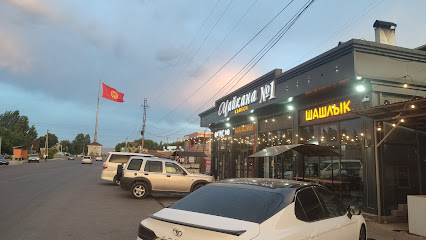
Tadzh Makhal
Discover the vibrant flavors of Jalal-Abad at Tadzh Makhal - your go-to fast food spot for quick bites and local delights.
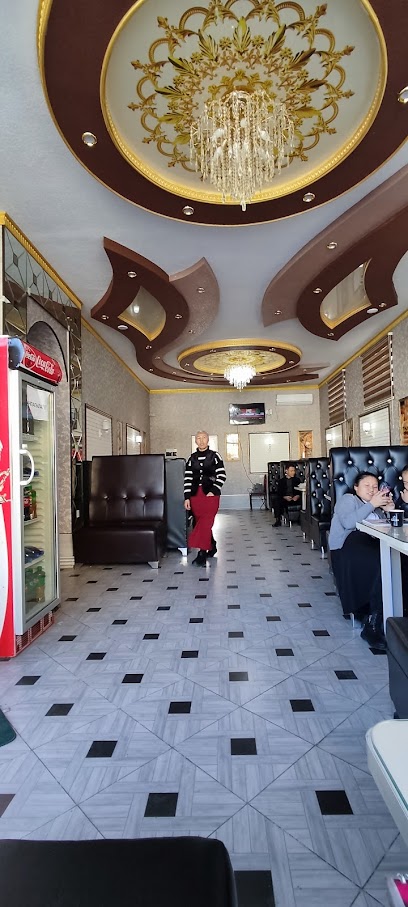
Kypchak Ordo
Savor authentic Kyrgyz cuisine at Kypchak Ordo in Jalal-Abad - a must-visit culinary destination for every traveler.
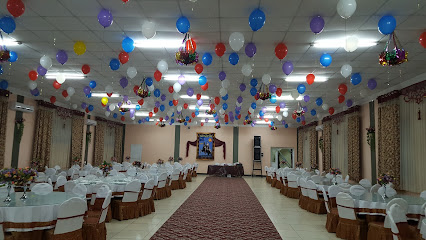
Чайхана Шамал
Discover the authentic tastes of Kyrgyzstan at Чайхана Шамал in Jalal-Abad - a culinary journey you won't forget.
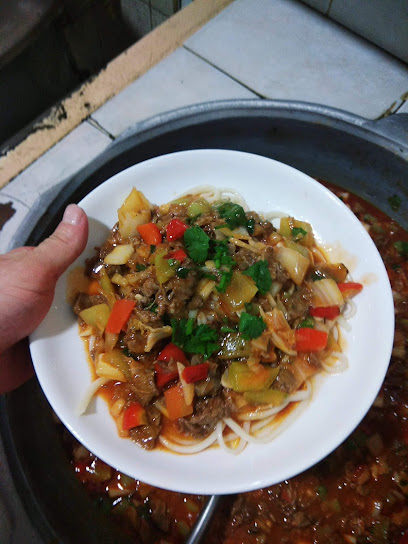
Monte-Carlo Resort
Discover luxury at Monte-Carlo Resort in Suzak: Fine dining, plush accommodations & an indoor pool await your arrival.
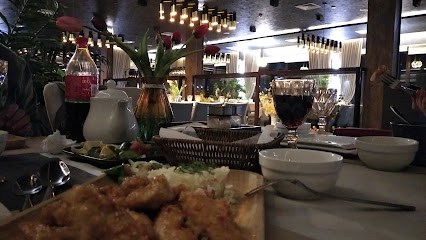
Markets, malls and hidden boutiques
Aigul Shopping Center
Discover Aigul Shopping Center in Jalal-Abad: A vibrant retail destination offering diverse shops, delicious local cuisine, and convenient services for all travelers.
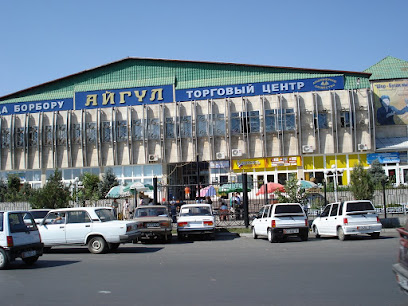
Erkindik Magazin Saltanat
Experience the flavors of Kyrgyzstan at Erkindik Magazin Saltanat, Jalal-Abad's essential grocery store for local and international delights.
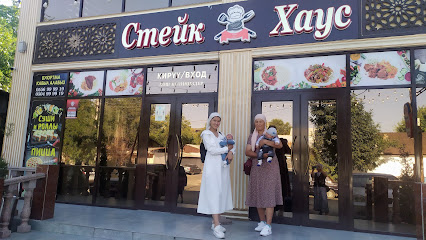
Colezeone
Explore Colezeone in Jalal-Abad for a diverse array of clothing and accessories that reflect local culture and contemporary trends.
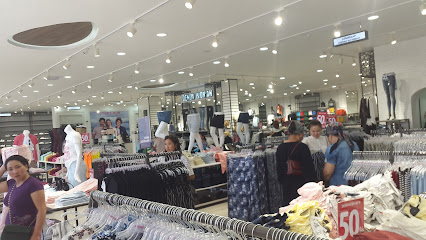
KELECHEK
Explore Kelechek in Jalal-Abad for an unforgettable shopping and dining experience, blending local culture with modern retail.
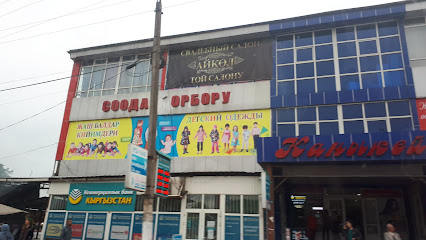
Frunze supermarket
Explore the vibrant Frunze Supermarket in Jalal-Abad for a unique shopping experience filled with local flavors and traditional Kyrgyz products.
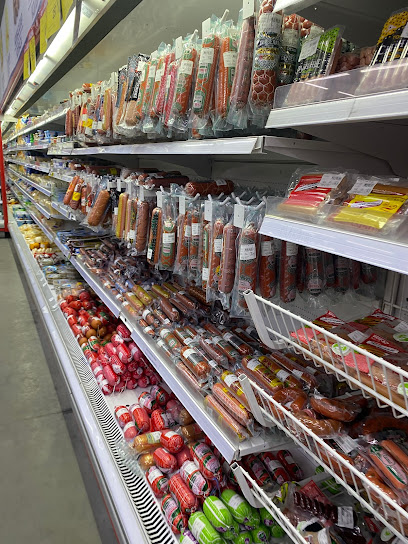
Frunze gipermarket 3
Explore the vibrant Frunze Gipermarket 3 in Jalal-Abad for an authentic shopping experience filled with local delicacies and everyday essentials.
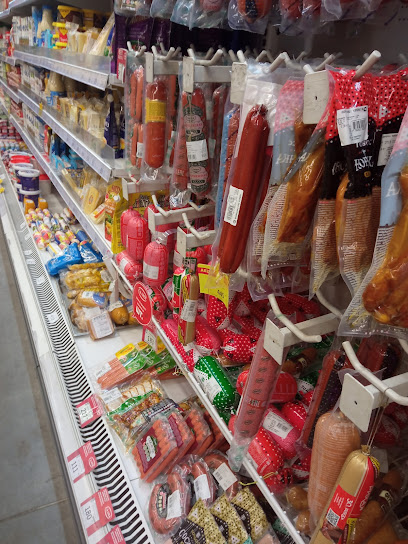
Center Costumes / Жалалабад костюм борбору
Discover authentic Kyrgyz men's clothing at Center Costumes in Jalal-Abad, where tradition meets contemporary style in a vibrant shopping experience.
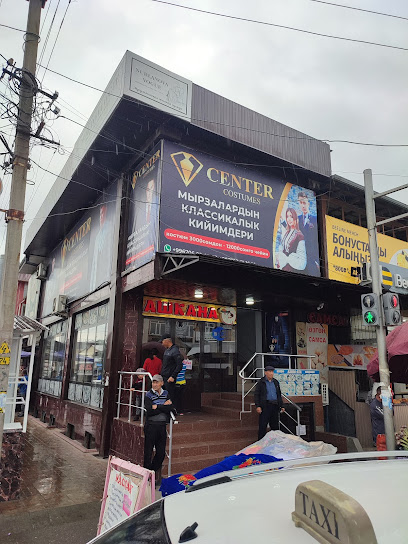
Mogol
Explore the vibrant Mogol store in Jalal-Abad for unique local products and an authentic Kyrgyz shopping experience.
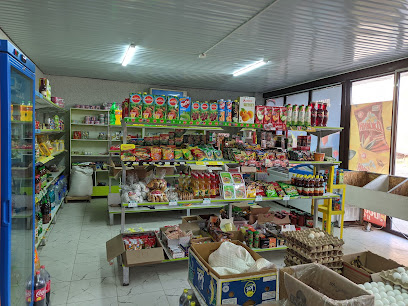
Solikhiyn
Explore the literary gem of Jalal-Abad at Solikhiyn, where every book tells a story and invites you to discover a new world.
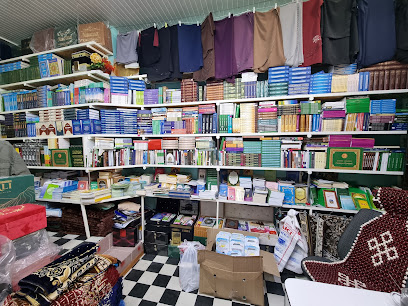
Kyrgyzstan
Explore Kyrgyzstan's vibrant women's clothing stores, where tradition meets modern fashion amidst breathtaking landscapes.
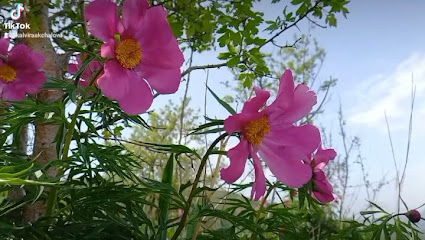
AK ALTYN
Discover unique Kyrgyz souvenirs at AK ALTYN in Jalal-Abad, where local craftsmanship meets authentic culture for the perfect keepsake.

ShopX Mini-Market
Discover the charm of Jalal-Abad at ShopX Mini-Market, where local flavors and unique finds await every visitor.
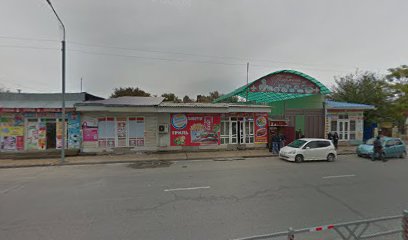
Me and my choice
Explore the vibrant fashion scene at 'Me and My Choice' in Jalal-Abad, where local culture meets contemporary style in a memorable shopping experience.
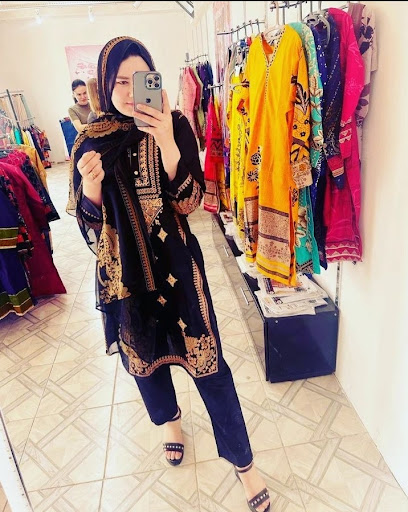
Mohsin no gallo
Immerse yourself in local flavors at Mohsin no Gallo, the premier grocery store in Jalal-Abad, showcasing the best of Kyrgyz culinary delights.
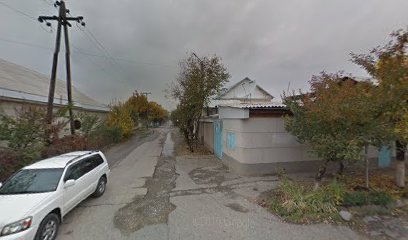
TOKSHOP
Discover stylish men's clothing and local craftsmanship at TOKSHOP in Jalal-Abad, where fashion meets culture in a vibrant shopping experience.
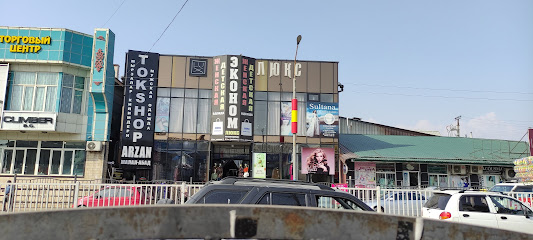
Essential bars & hidden hideouts
Jalal-Abad
Experience the vibrant flavors of Jalal-Abad, where traditional Kyrgyz cuisine meets modern culinary delights in a culturally rich setting.
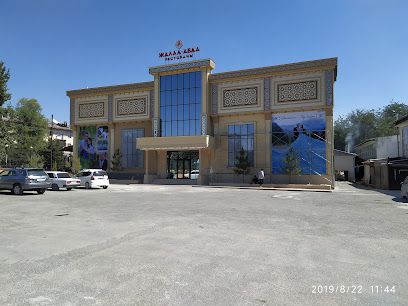
Rich House
Experience the vibrant flavors of Jalal-Abad at Rich House, where local cuisine meets a cozy café atmosphere.
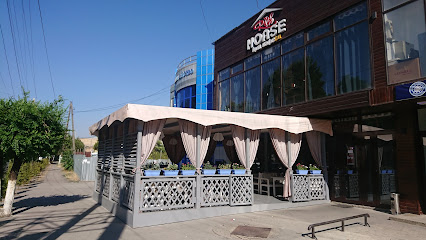
karavan.lounge bar
Experience the vibrant nightlife at Karavan Lounge Bar in Jalal-Abad, where refreshing drinks and a lively atmosphere await every visitor.
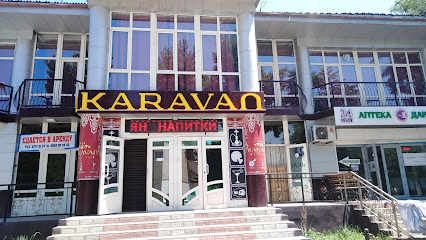
Hayat_resto_bar
Discover the vibrant flavors of Jalal-Abad at Hayat Resto Bar, where local cuisine meets international delights in a lively setting.
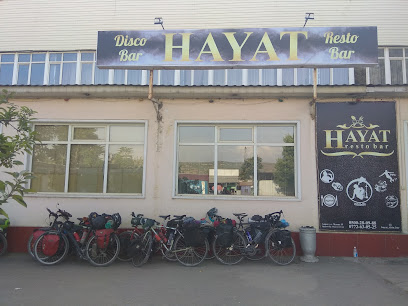
Milan Restaurant
Discover the authentic flavors of Jalal-Abad at Milan Restaurant, where local cuisine meets warm hospitality in a cozy setting.
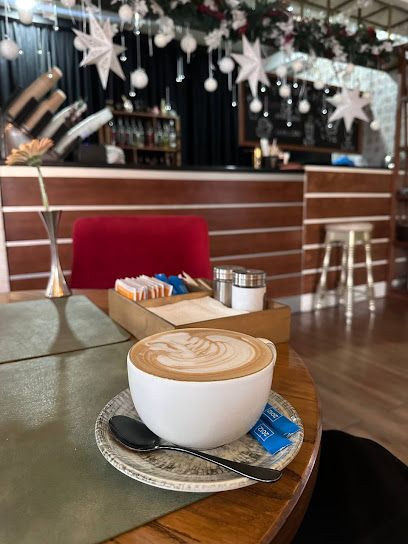
Kafe Seul
Experience the vibrant atmosphere and local flavors at Kafe Seul, a must-visit bar in the heart of Jalal-Abad.
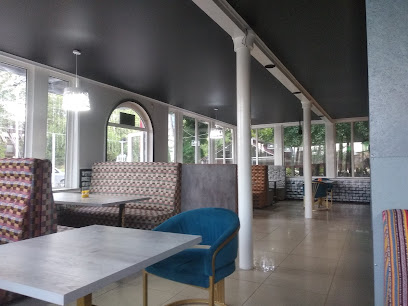
Mehfil Cafteria
Discover the authentic tastes of Jalal-Abad at Mehfil Cafeteria, where local flavors meet a warm, inviting atmosphere.

Gaz Voda Medovoye
Discover the lively ambiance of Gaz Voda Medovoye in Jalal-Abad, where refreshing drinks and local culture come together for an unforgettable experience.
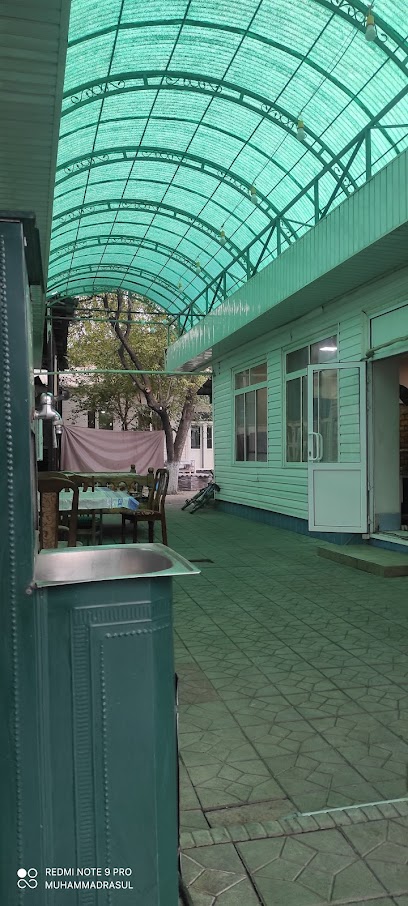
Baron Lounge bar
Discover the vibrant atmosphere and exquisite flavors at Baron Lounge Bar in Jalal-Abad, where culinary delights and nightlife converge.
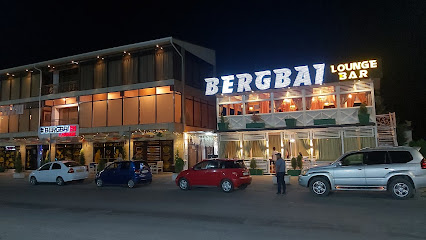
Restoran Bageri
Discover the vibrant tastes of Jalal-Abad at Restoran Bageri, where traditional cuisine meets modern comfort in a cozy setting.
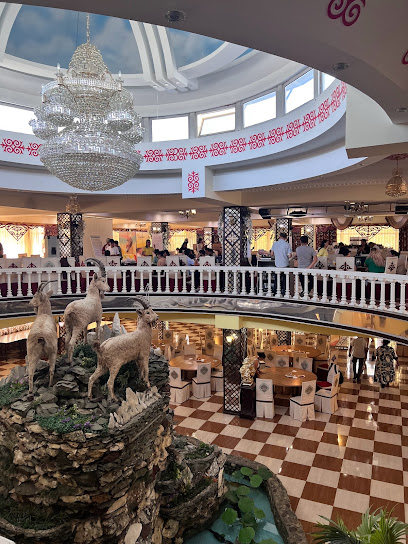
King's bar
Discover the vibrant nightlife at King's Bar in Jalal-Abad, where local drinks meet international flair in a lively atmosphere.
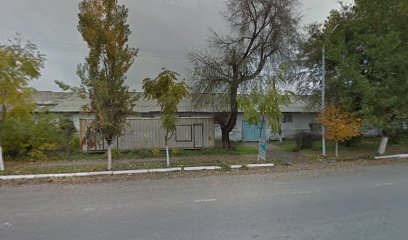
Aktilektin Uyu
Discover the lively spirit of Jalal-Abad at Aktilektin Uyu, a bar that blends local culture with a warm and inviting atmosphere.

Ordo
Experience the vibrant nightlife of Jalal-Abad at Ordo, a lively bar with a warm ambiance and an array of refreshing beverages.

Nuris Chychyp Koygon Zher
Discover the vibrant atmosphere at Nuris Chychyp Koygon Zher, a charming bar in Jalal-Abad blending local culture with delightful drinks.

Local Phrases
-
- HelloСаламатсызбы?
[Salamatsyzby?] - GoodbyeКайырсыз
[Kayyrsyz] - YesОоба
[Ooba] - NoЖок
[Jok] - Please/You're welcomeКайырсыз
[Kayyrsyz] - Thank youРахмат
[Rahmat] - Excuse me/SorryКечиресиз
[Keşiresiz] - How are you?Кандайсыз?
[Kandaysyz?] - Fine. And you?Жакшым. Сиз кандайсыз?
[Jaqşım. Siz kandaysyz?] - Do you speak English?Сиз инглизче сүйлөсүңүзбү?
[Siz inglizçe süylösüŋüzbü?] - I don't understandМени түшүнө албайсыз
[Meni tüşünö albayısız]
- HelloСаламатсызбы?
-
- I'd like to see the menu, pleaseМенючүн көрүп алгым келет
[Menüçün körüp algım kelet] - I don't eat meatМен майын жемем
[Men mayın jemem] - Cheers!Тама!
[Tama!] - I would like to pay, pleaseЭмне кылгым келет?
[Emne kılğım kelet?]
- I'd like to see the menu, pleaseМенючүн көрүп алгым келет
-
- Help!Жардам!
[Jardam!] - Go away!Арканыз
[Arkınız] - Call the Police!Полицияны чакыраба?
[Politsiyanı çakıra] - Call a doctor!Доктор чакырып алба?
[Doktor çakırap alba?] - I'm lostМен кайболдум
[Men kayboldum] - I'm illМен күнөө
[Men künöö]
- Help!Жардам!
-
- I'd like to buy...Мен сатып алгым келет...
[Men satıp algım kelet...] - I'm just lookingМен карап жатам
[Men karap çatam] - How much is it?Буна чыгары?
[Buna çığarı?] - That's too expensiveБу жакшы чыгары
[Bu jaqşı çığarı] - Can you lower the price?Сиз чыгарманы төмөндөсүзбү?
[Siz çığarmanı tömöndösüz]
- I'd like to buy...Мен сатып алгым келет...
-
- What time is it?Саат канчада?
[Saat kançada?] - It's one o'clockСаат бирде
[Saat birdö] - Half past (10)Ондон кыймыз
[Ondon kıymız] - MorningЭрте күн
[Erte kün] - AfternoonАлдын күн
[Aldın kün] - EveningАкшам
[Akşam] - YesterdayКече
[Keçe] - TodayБүгүн
[Bügün] - TomorrowЭрте
[Erte] - 1Бир
[Bir] - 2Эки
[Eki] - 3Үч
[Üç] - 4Төрт
[Tört] - 5Беш
[Beş] - 6Алты
[Altı] - 7Жети
[Jeti] - 8Сегиз
[Segiz] - 9Тогуз
[Toğuz] - 10Он
[On]
- What time is it?Саат канчада?
-
- Where's a/the...?...кайда бар?
[...kayda bar?] - What's the address?Мекен-жай канча?
[Meken-jay kança?] - Can you show me (on the map)?Маалыматты картада көрсөтүп бересизби?
[Maalımatı kartada körsötüp beresizbi?] - When's the next (bus)?Кийинки (автобус) качасы кайда?
[Kiynki (avtobus) kaçası kayda?] - A ticket (to ....)Билет (.... кара)
[Bilet (.... kara)]
- Where's a/the...?...кайда бар?
History of Jalal-Abad
-
Jalal-Abad's history can be traced back to ancient times when it was a key stopping point on the legendary Silk Road. This historic trade route connected the East and West, fostering cultural exchange and commerce. The region was known for its bustling markets, where traders from different parts of the world would exchange goods such as silk, spices, and precious stones. Jalal-Abad's strategic location made it a melting pot of cultures and a vital hub for trade and communication.
-
In the 18th and 19th centuries, Jalal-Abad became part of the Khanate of Kokand, a powerful Central Asian state. The Khanate played a crucial role in the political and economic landscape of the region. Jalal-Abad thrived under the Kokand rule, benefiting from the khanate's emphasis on trade and agriculture. The influence of the Kokand period is still evident in the architecture and cultural practices of the area.
-
The Soviet era brought significant changes to Jalal-Abad. In 1924, Jalal-Abad became part of the Kyrgyz Soviet Socialist Republic. The Soviet government implemented various modernization projects, including the construction of infrastructure and industrial facilities. The city saw the establishment of factories, schools, and hospitals, transforming it into an important industrial and educational center. The Soviet influence is still visible in the city's architecture and urban planning.
-
Following the collapse of the Soviet Union in 1991, Kyrgyzstan gained independence, and Jalal-Abad embarked on a journey of transformation. The city faced challenges such as economic instability and political changes. However, it also saw opportunities for growth and development. Efforts were made to preserve cultural heritage while fostering economic progress. Jalal-Abad emerged as a vibrant city with a unique blend of traditional and modern elements.
-
Jalal-Abad is renowned for its rich cultural heritage and natural landscapes. The city is home to several historical sites, including ancient fortresses, mausoleums, and shrines that reflect its storied past. The surrounding region is known for its stunning natural beauty, with picturesque mountains, lush valleys, and mineral springs. These natural attractions, combined with the city's cultural treasures, make Jalal-Abad a captivating destination for travelers seeking both history and adventure.
Jalal-Abad Essentials
-
Jalal-Abad is located in the southwestern part of Kyrgyzstan. The nearest international airport is Osh International Airport, approximately 100 kilometers east of Jalal-Abad. From Osh, you can take a taxi, minibus (marshrutka), or a shared taxi to Jalal-Abad. The journey typically takes around 2 to 3 hours by road. Alternatively, you can take a domestic flight from Bishkek, the capital of Kyrgyzstan, to Osh and then proceed to Jalal-Abad.
-
Within Jalal-Abad, transportation options include taxis, marshrutkas, and buses. Taxis are plentiful and relatively inexpensive but make sure to agree on a fare before starting your journey. Marshrutkas are a popular mode of transport among locals and are a cost-effective way to get around. Renting a car is another option if you plan to explore areas outside the city. Bicycles can also be rented for short trips around the city.
-
The official currency in Kyrgyzstan is the Kyrgyzstani Som (KGS). Credit cards are accepted in some hotels, restaurants, and shops, but it is advisable to carry cash, especially in smaller establishments and rural areas. ATMs are available in Jalal-Abad, but it's a good idea to withdraw sufficient cash in larger cities like Bishkek or Osh before traveling.
-
Jalal-Abad is generally a safe destination for tourists. However, it's always wise to take standard precautions. Avoid walking alone at night in unfamiliar areas and keep an eye on your belongings in crowded places. While there are no specific high-crime areas targeting tourists, it is always best to stay vigilant and aware of your surroundings.
-
In case of emergency, dial 102 for police, 103 for an ambulance, or 101 for fire services. The local police station and medical facilities are available in Jalal-Abad. It is recommended to have travel insurance that covers medical emergencies. For minor health issues, there are pharmacies in the city where you can purchase over-the-counter medications.
-
Fashion: Do dress modestly, especially when visiting religious sites. Avoid wearing revealing clothing. Religion: Do respect local customs and traditions. Always remove your shoes and cover your head when entering mosques. Public Transport: Do be respectful and give up your seat to elderly passengers. Don't eat or drink on public transport. Greetings: Do greet people with a handshake. A slight bow of the head is also a sign of respect. Eating & Drinking: Do try local delicacies and accept food offerings graciously. Don't refuse hospitality, as it is considered impolite.
-
To experience Jalal-Abad like a local, visit the local bazaars where you can buy fresh produce and traditional Kyrgyz goods. Engage with locals, as they are often friendly and willing to share stories about the city's history and culture. Don't miss visiting the famous mineral springs and health resorts. For a unique experience, take a trip to the nearby Arslanbob, known for its walnut forests and stunning waterfalls.
Nearby Cities to Jalal-Abad
-
Things To Do in Osh
-
Things To Do in Andijan
-
Things To Do in Namangan
-
Things To Do in Kyzyl-Oi
-
Things To Do in Angren
-
Things To Do in Bishkek
-
Things To Do in Kochkor
-
Things To Do in Tokmok
-
Things To Do in Chirchiq
-
Things To Do in Khujand
-
Things To Do in Kemin
-
Things To Do in Tashkent
-
Things To Do in Shymkent
-
Things To Do in Istaravshan
-
Things To Do in Cholpon-Ata







